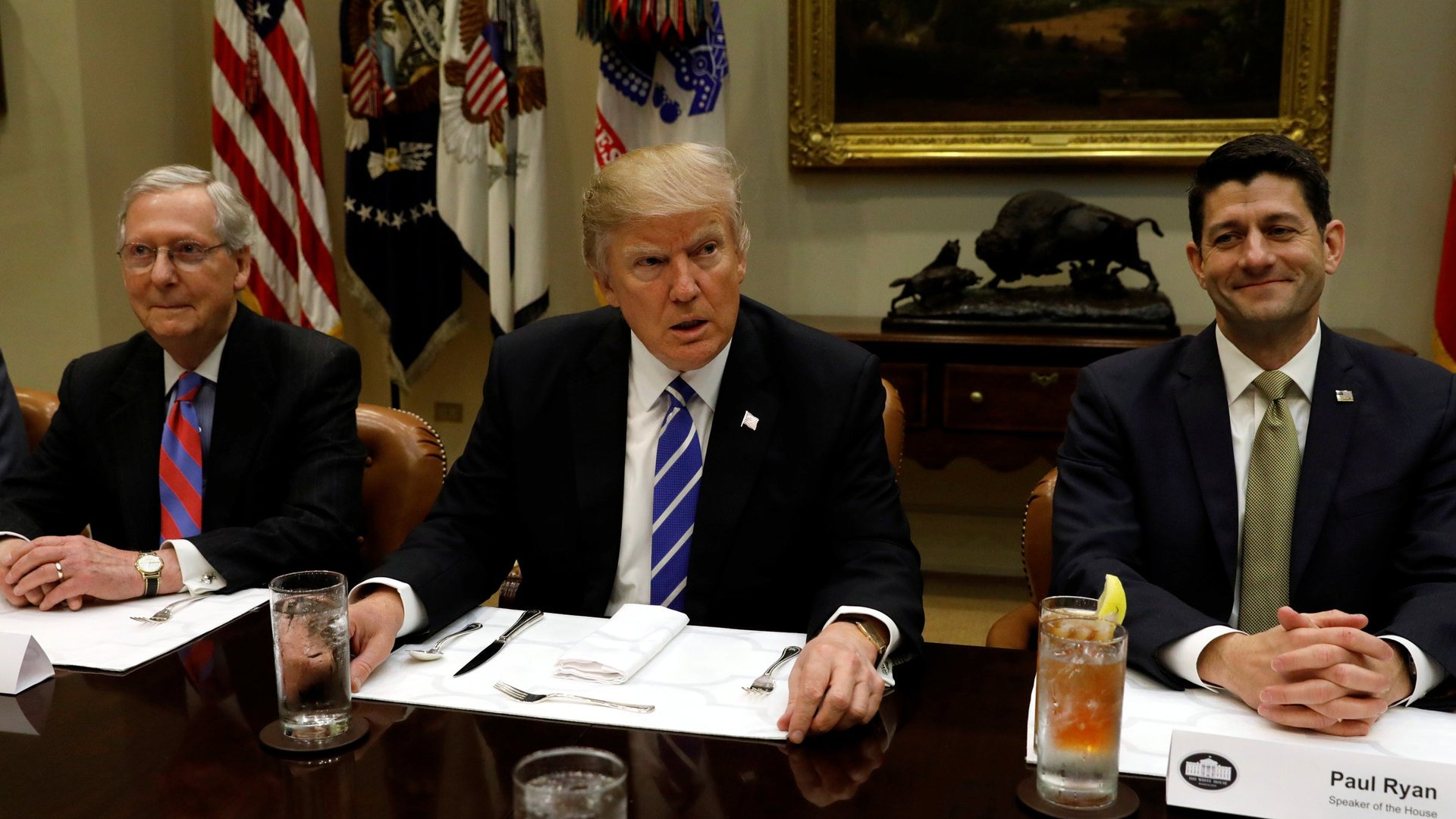The new Republican health-care bill is no longer a secret. Here’s who it could hurt the most
The US Senate has finally released the health care bill (pdf) it has been writing behind closed doors and intends to vote on next week. Despite concerns from some lawmakers and even president Donald Trump that the bill would be too “mean” to low-income Americans—particularly those reliant on Medicaid—early reads of this new version suggest that it may hit poor voters even harder than the House version, which was passed in early May.


The US Senate has finally released the health care bill (pdf) it has been writing behind closed doors and intends to vote on next week. Despite concerns from some lawmakers and even president Donald Trump that the bill would be too “mean” to low-income Americans—particularly those reliant on Medicaid—early reads of this new version suggest that it may hit poor voters even harder than the House version, which was passed in early May.
Here are some major features of the Senate bill, the House bill and current law:
This is still a bill designed to cut taxes on the wealthy and health subsidies for low-income Americans, while teeing up the budget baseline for a clean shot at broader tax cuts down the line.
One major difference between the two bills is that the Senate bill may be more politically astute: Most of its major cuts to health care subsidies will go into effect after both the 2018 congressional election and the 2020 presidential election, insulating lawmakers who support the bill from the immediate reaction of voters experiencing the new “Trumpcare” system.
The bill, which was spearheaded by an all-male team of senators, could also be particularly harsh for women. Like the House bill, the Senate one would “defund” Planned Parenthood, and allow states to redefine what they consider “essential” health benefits. As a result, 13 million women could lose coverage to maternity care, Planned Parenthood estimates.
Early reports suggest that some Republican senators will announce their opposition to the bill as early as this afternoon. The bill can only survive three GOP defections if senate Democrats and their independent allies oppose the bill en masse, as is expected. But early objections from conservatives may simply be political theater designed to allow electorally threatened lawmakers a chance to win public points by amending the bill before final passage.
“Obamacare is dead, and we’re putting out a plan today that’s going to be negotiated,” Trump told reporters at the White House on Thursday morning. Asked if it had “enough heart,” he said “A little negotiation, but it’s going to be very good.”
Right now, most of the information we have regarding the bill is coming from the Senate Republicans who wrote it. We’ll know more about the plan in total next week when the independent Congressional Budget Office releases its own analysis of how the bill will affect federal spending and revenues, as well as national insurance coverage.